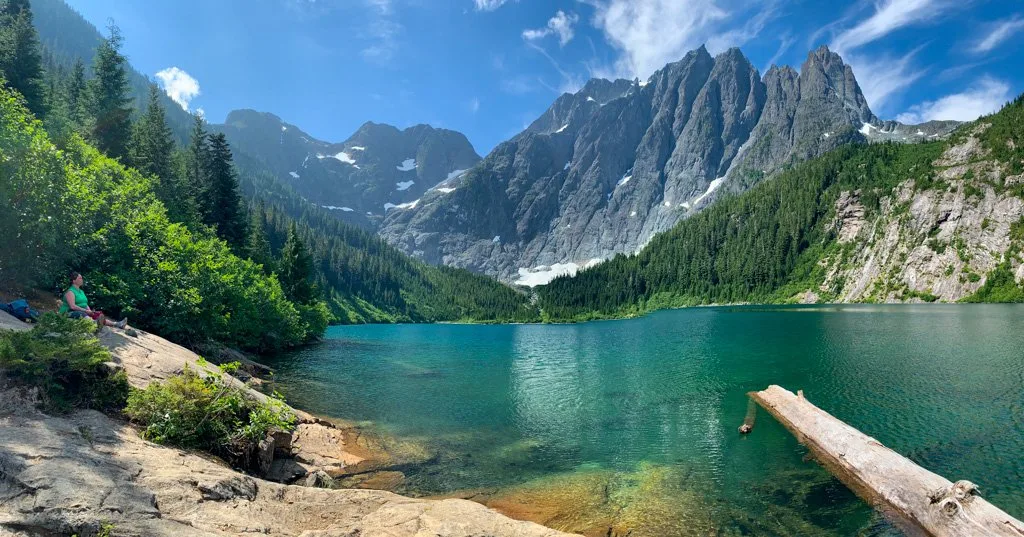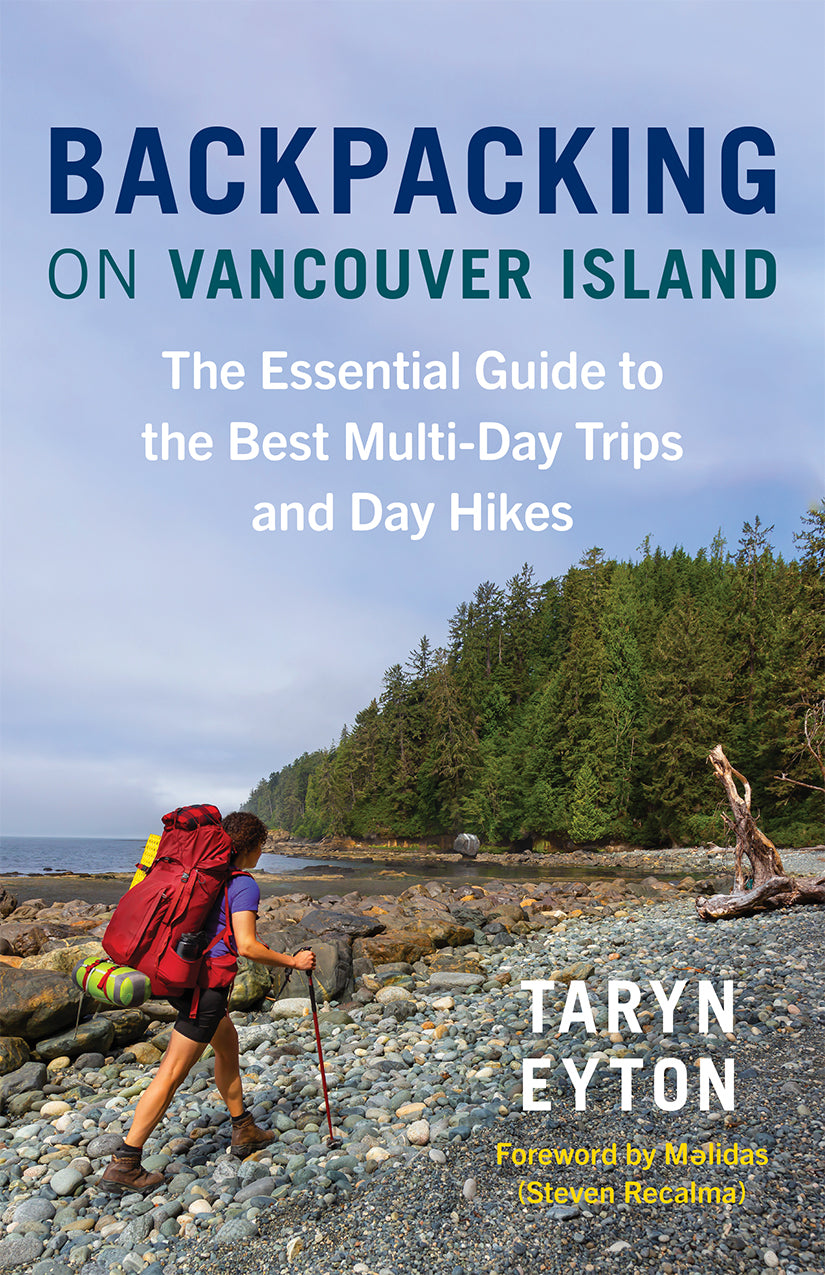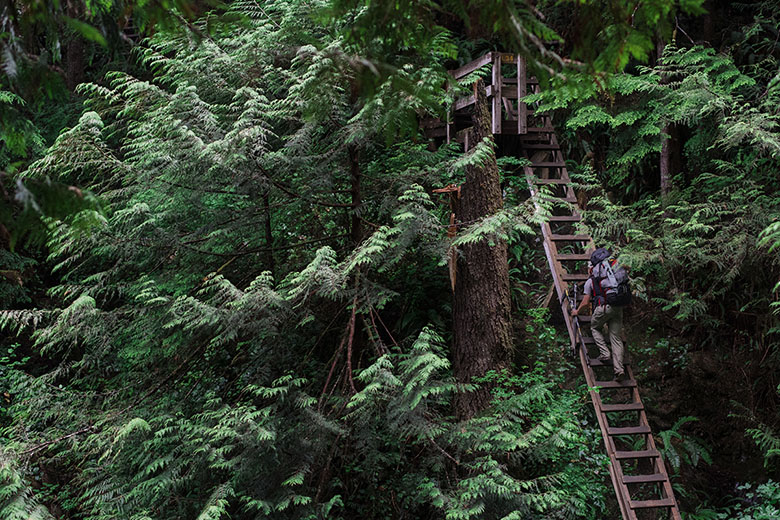Vancouver Island offers spectacular backpacking trails through lush rainforests and rugged coastlines. It’s a prime destination for adventure seekers and nature lovers.
Exploring Vancouver Island’s backcountry provides an unforgettable experience with its diverse landscapes. From the mystic charm of ancient forests in Strathcona Provincial Park to the breathtaking ocean views along the Juan de Fuca Trail, the region promises a variety of trails for all skill levels.
Each path rewards hikers with vibrant ecosystems and the chance to spot local wildlife, including eagles and black bears. Backpacking here not only challenges the physical prowess of adventurers but also offers a serene escape into nature. With well-maintained campsites and clear trail signs, the island is a safe and exciting choice for your next outdoor expedition.
Vancouver Island Backpacking Essentials
Embarking on a Vancouver Island backpacking journey requires careful planning. Select durable and weather-appropriate clothing to ensure comfort and safety. A reliable tent, sleeping bag, and mat are crucial for restful nights.
Don’t forget navigation tools like a map and compass. High-energy snacks and a portable stove will keep you fueled. Remember to pack a first-aid kit, bear spray, and a multi-tool.
Secure necessary permits before your trip. Respect local wildlife by understanding regulations on camping and fires. Stay informed about protected areas to preserve the island’s natural beauty.

Credit: happiestoutdoors.ca
Best Time To Visit
The best time to visit Vancouver Island for backpacking is during the summer months. From June to August, you’ll experience warm temperatures and the least rainfall. This period offers the most favorable weather for outdoor activities.
Fall brings cooler weather and a higher chance of precipitation, but the changing leaves can be quite stunning. Winter sees the island’s highest rainfall, which can make trails slippery and less accessible. Spring is a transition time with increasing sunshine and milder weather.
Regarding seasonal crowds, summer is the peak tourist season. Expect more visitors and busier trails. For a more solitary experience, consider shoulder seasons like late spring or early fall. During these times, you’ll find fewer tourists and a more peaceful atmosphere.
Top Backpacking Trails
Vancouver Island offers some of the most breathtaking backpacking trails in the world. The West Coast Trail, a historical path spanning 75 kilometers, promises rugged terrain and spectacular coastal views. Expect to navigate ladders, bridges, and potentially challenging weather conditions.
The North Coast Trail extends for 43 kilometers, providing adventurers with a true wilderness experience. This trail is less traveled and offers an authentic connection with nature. Be prepared for a physically demanding journey, with rewards of stunning scenery and wildlife encounters.
Lastly, Della Falls Trail is known for leading to Canada’s highest waterfall. Covering 15 kilometers one way, it offers a moderate hike with the ultimate reward of witnessing the majestic Della Falls. Boat access is required to start this trail, adding to the adventure.
Preparing For The Journey
Embarking on a Vancouver Island backpacking adventure demands physical readiness. Achieving a good fitness level ensures enjoyment and safety. Regular cardio exercises such as running or cycling are beneficial. Strength training, particularly for legs and back, is crucial. Consistent workouts will prepare muscles for the trek.
Trail navigation skills are essential for a successful hike. Start by learning to read topographic maps and use a compass. Modern technology offers GPS devices, but relying solely on electronic tools is not advisable. Knowledge of the environment and basic survival skills can be lifesavers in unexpected situations. Engaging in outdoor navigation courses can significantly boost your confidence on the trail.
Safety Considerations
Exploring Vancouver Island requires safety first. Always be aware of wildlife such as bears and cougars. Carry bear spray and know how to use it.
Emergency kits are essential. Your kit should have water, snacks, a first-aid kit, and a flashlight. Tell someone your plan before you leave.

Credit: www.amazon.com
Leave No Trace Principles
Camping etiquette is vital for preserving natural beauty. Always use established campsites. Keep noise levels low to respect wildlife and other campers. Store food securely to avoid attracting animals.
Waste management is crucial. Always pack out what you bring in, including all trash and leftover food. Use biodegradable soap for cleaning, and dispose of water at least 200 feet from any water sources. Bury human waste in a small hole, 6-8 inches deep, also away from water sources.
Island Backpacking Resources
Vancouver Island boasts a vibrant backpacking scene. Local guide services offer personalized treks through lush forests and rugged coastlines. Expert guides enhance your adventure with their knowledge of the terrain and ecology. Joining a guided hike can also provide peace of mind, especially for novice backpackers.
Backpacking communities on the island are welcoming and active. They often organize group hikes, share tips, and exchange gear. Newcomers find these communities through social media groups or local outdoor retailers. Participation in these groups offers valuable insights and the chance to make new friends with shared interests.

Credit: greystonebooks.com
Personal Experiences And Stories
Exploring Vancouver Island by backpack offers a unique blend of adventure and serenity. Each trail tells its own story, with lush forests, pristine lakes, and stunning vistas around every corner. One particular sunrise over the Pacific Ocean left an indelible mark on my memory, painting the sky with hues of orange and pink.
Preparation is key for a successful backpacking trip. I learned to always check gear before departure. A simple mistake, like forgetting a water filter, can lead to a challenging situation. Respecting nature and staying on marked trails helps preserve the beauty for future visitors.
| Lesson | Importance |
|---|---|
| Check Gear | Prevents unforeseen challenges |
| Follow Trails | Conserves natural habitats |
Frequently Asked Questions
What Is The Best Backpacking Trail On Vancouver Island?
The West Coast Trail is widely considered the premier backpacking route on Vancouver Island, renowned for its challenging terrain and stunning coastal scenery.
How Long Does It Take To Do The West Coast Trail Vancouver Island?
Typically, hikers complete the West Coast Trail on Vancouver Island in 5 to 7 days, depending on experience and pace.
How Long Does It Take To Hike Cape Scott?
Hiking Cape Scott typically takes 3-5 days, depending on pace and experience. Shorter day hikes to Cape Scott Lighthouse are also popular.
What Is The East Coast To West Coast Trail?
The East Coast to West Coast Trail is a cross-country hiking route spanning from one side of the United States to the other.
Conclusion
Embracing the rugged beauty of Vancouver Island is an unforgettable experience. Each trail offers a gateway to majestic landscapes and serene wilderness. Whether a novice or a seasoned trekker, the island’s charm beckons. Pack your gear, respect nature, and embark on the adventure of a lifetime.
Vancouver Island awaits your footsteps.
